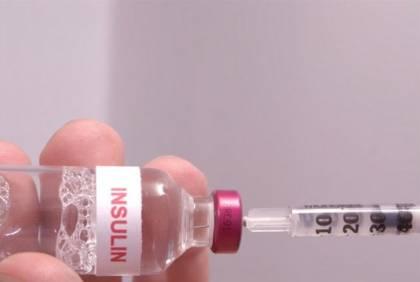Muscle Diet


Insulin: The 2nd Most Anabolic Hormone
QUESTION: Is it true that Insulin is the most anabolic hormone in the body?
ANSWER: First of all, let's just deal with this belief that insulin is the "most anabolic hormone". In some ways this may be true because insulin is the primary hormonal signal that helps deliver protein, carbs, fat and creatine from the bloodstream into the cell. Think of insulin as a "storage" hormone - so it delivers raw materials nutrients) into the body's millions of tiny factories (the cells). However, if we're discussing which hormone delivers the signal to increase the activity of the muscle-building machinery to the cell, the most anabolic hormone is, hands down, testosterone. Testosterone instructs the cell to increase the size of muscle fibres (among other things). So to put it simply, if you strategically injected insulin (which is, by the way, a very dangerous practice that can result in coma or death) for say eight weeks, you'd put on size but you'd also gain a lot of fat. You see, insulin clears sugar from your bloodstream, which signals the body that it's running low on fuel, which in turn signals hunger cravings. So the anabolic effect of insulin probably comes primarily through a good old fashion high-calorie diet.
EFFECTS OF INSULIN
Now, when we talk about insulin, we need to be clear that it can deliver its effects in two ways:
- Obviously by increasing insulin levels - either by increasing production or injecting it.
- By increasing "insulin efficiency" - this refers to how much work each molecule of insulin can do, if you increase its efficiency the same amount of insulin has a stronger effect.
OK, remember me saying that insulin management is in some ways very simple?
Well, here's the simple rules:
Before exercise, minimize insulin. The last thing you want is to increase the levels or efficiency of a hormone that clears sugar from the blood before training - that's like draining the gas out of your car before a race! High intensity weigh training runs on SUGAR for energy! But I have to ask, why the heck do some supplement companies add insulin sensitizers (that make insulin more efficient) to pre-workout products!? When we train we want an increase in adrenalin (epinephrine). This is the so-called "fight or flight hormone" - it gives us focus and provides energy to the muscles. It does this by increasing insulin's "opposite" (known as a "counter-regulatory") hormone called glucagon. Glucagon's job is to release sugar from the cells into the blood for use by the muscles as energy. So caffeine and other stimulants, along with ingredients that give the muscles a pump and essential aminos that give you the jump on recovery are the order of the day before training.
After exercise, is the time to jack up insulin. This is the time you want the nutrients from the blood - like protein (aminos), carbs, creatine, etc. transported into the muscles so that they have what they need to recover quickly and completely, so you're that much bigger and stronger for the next session. Most guys who've been lifting for a while know that it is after training that you need to max insulin.
Mark Gilbert Post-Workout Prescription
The obvious way to do this is to have a big serving of quickly-digested carbs - depending upon goals, this should be 30 to about 150 grams, along with whey protein (least 20 grams). The whey further boosts insulin along with the obvious payload of amino acids. Hydrolysed whey is even better because it is absorbed faster and boosts insulin higher. You should also address insulin "efficiency" by taking insulin sensitizers. There are many but the most effective is probably lipoic acid. Research from the University of Toronto shows lipoic acid improves insulin function, which is diminished after heavy weight training. Lipoic acid actually restores the potency of insulin by acting upon a seperate pathway so it can actually make up for the loss in insulin function caused by heavy training. So that's the basics regarding insulin and training - it's easy...
Pre Workout: Get Insulin Low
Post Workout: Get Insulin High
To read more work by Mark Gilbert or to hire him to out your diet together for you, check out his website at: MuscleDiet.net

